Scandinavian Seaplanes, a charter and tourism operator based in Bergen, Norway, will convert its fleet of six Cessna floatplanes to battery-electric powertrains supplied by Dovetail Electric Aviation, an emerging Australian-Spanish joint venture with which it has signed a strategic partnership agreement. The first of the Scandinavian Cessnas are expected to be converted from 2026 once Dovetail secures regulatory certification of its battery-electric powertrain, which will be test flown next year on an amphibious Cessna Caravan operated by Australia’s Sydney Seaplanes, a co-founder of Dovetail. The announcement closely follows an investment in Dovetail by the Australian state of Victoria, where the company is separately developing a hydrogen-electric propulsion system with greater flight range than the initial battery-electric powertrain. It plans to test-fly its first hydrogen-electric plane, a converted Beechcraft King Air, in 2026.
The commitment by Scandinavian Seaplanes, Norway’s only operator of amphibious aircraft, comes well in advance of a Norwegian government mandate requiring all short-haul flights to be electrically powered by 2040. The company says the conversions will make it Europe’s first operator of electric seaplanes.
The airline currently operates four Cessna 206 and two Cessna 180 floatplanes and is planning to add another Cessna 206H, potentially before the end of this year. It is also looking to introduce a larger Cessna Caravan for its Bergen operations, and a twin-engine Beechcraft King Air 200 for airport-based flights from next year, when it plans to expand its activities to include scheduled flights.
The agreement with Scandinavian Seaplanes takes to more than 70 the number of firm orders and options for Dovetail’s battery-electric and hydrogen-electric propulsion conversion kits to customers including three seaplane operators. Dovetail’s biggest customer is UK-based regional aircraft lessor MONTE with 25 firm orders for zero-emission Dovetail powertrains, and options for up to 25 more.
The announcement of the Scandinavian Seaplanes agreement closely followed an investment in Dovetail of an undisclosed amount from the government of the southern Australian state of Victoria, to which the aerospace manufacturer recently transferred from, Sydney.
Under the funding deal, details of which were not disclosed, Invest Victoria, the state government’s main investment attraction and promotion agency is offering non-dilutive financial support to Dovetail to help advance local development of the Advanced Air Mobility (AAM) sector.
In return for government support, Dovetail has relocated its administrative centre from Sydney to the Victorian capital, Melbourne, and its hydrogen-electric test facility to the Latrobe Regional Airport south-east of Melbourne, a region which itself is being transformed from a former coal mining district. A major mine, once the hub of the region’s industry, was closed in 2017, and Australia’s largest brown coal-fired power station, still located in the region, will be decommissioned in 2035.
While progressing towards test-flying its battery-electric prototype in Sydney, Dovetail is using the new Victorian facility to evolve prototypes of its hydrogen-electric powertrain, which will be test-flown in Victoria in 2027 using a Beechcraft King Air aircraft. One of the plane’s two engines will be replaced with a hydrogen-electric powerplant, which the company will introduce to deliver significantly greater flying range or revenue payload than the initial battery-electric system.
“We are really pleased to support Dovetail Electric Aviation’s new centre in the Latrobe Valley, which will deliver world-leading innovations for the aviation sector, create new jobs in regional Victoria and contribute to the state’s net-zero emissions goal,” said Harriet Shing MP, State Parliamentary representative for Eastern Victoria.
Dovetail’s CEO, David Doral, welcomed the support from the Victorian government which, coupled with other investments, was helping quicken the company’s development of zero emission aircraft propulsion.
“This investment will enable us to accelerate our research and development efforts, bringing us closer to our vision of a sustainable, efficient, and accessible aviation future,” he said.
Meanwhile, as well as backing Dovetail, MONTE has announced a strategic partnership with Natilus, a US aerospace company developing a next-generation blended-wing-body regional cargo aircraft that it claims will offer an 80% reduction in CO2 emissions through its more aerodynamically efficient structure, and reduce operating costs by more than half. MONTE will provide leasing and financing options for the Natilus Kona aircraft, which the San Diego-based company says will be its first commercially available aircraft.
“This collaboration represents a significant step forward in our mission to revolutionise the cargo transport industry with innovative, environmentally-friendly solutions,” said Aleksey Matyushev, CEO and co-founder of Natilus.
The company says the blended-wing-body design is ideally suited for hydrogen-electric propulsion as hydrogen is volume centric and so suitable for carrying hydrogen tanks without impacting payload or range.
“The Kona is a unique aircraft that has been developed specifically to optimise air cargo operations,” said MONTE COO Timothy Eyre. “The opportunity to integrate hydrogen electric propulsion systems into the aircraft is strongly aligned with our strategy to decarbonise regional aviation.”
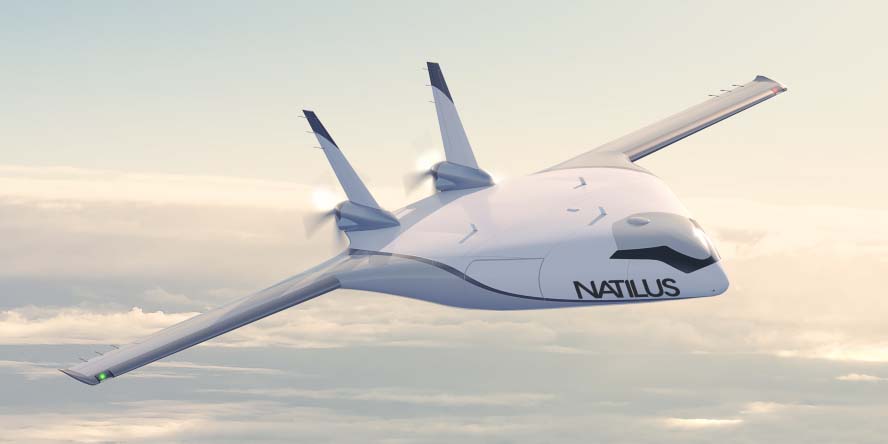
Top photo: Scandinavian Seaplanes
Bottom image: The Natilus Kona blended-wing-body regional cargo aircraft

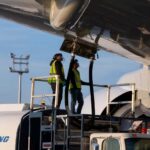
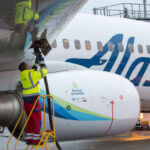
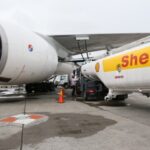

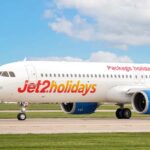

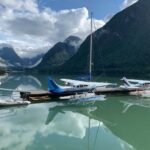
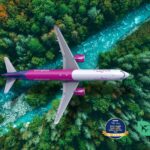







More News & Features
Boeing, WestJet and Air New Zealand ink North American SAF supply deals
SABA’s corporate members to purchase certificates covering 50 million gallons of SAF
UK government outlines mandate plan for an ambitious 10% use of SAF by 2030
UK SAF Clearing House opens its doors to new aviation fuel producers
Leisure airline Jet2 to use SAF at Stansted and Bristol as it prepares for UK mandate
Aviation roadmaps show large differences in pathways to net zero, finds IATA report